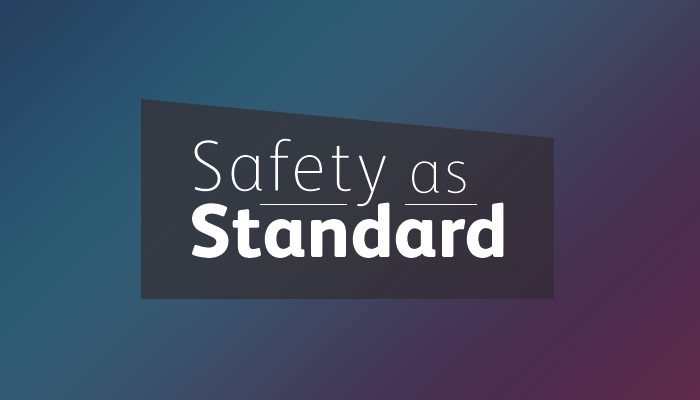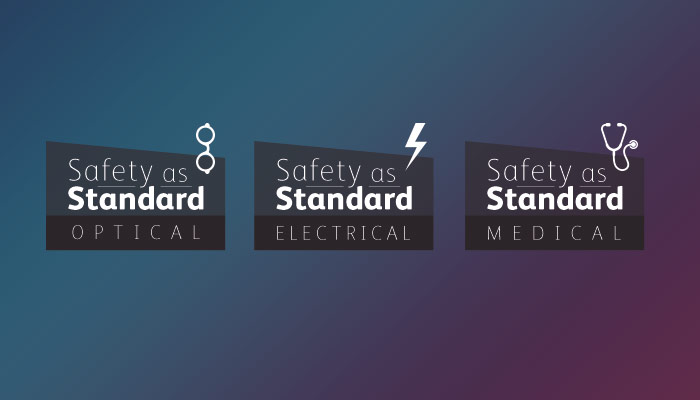
Irwin Mitchell helps hundreds of clients who’ve suffered injuries and property damage from defective products. In many cases, the damage caused has been life changing.
We’re experienced in dealing with these incidents and understand the systems made to protect consumers. We believe more can and should be done to protect consumers from the risk of serious injury or death from defective products.
Most manufacturers and retailers care about the safety of their products and strive to maintain their high standards and reputation. But the large range of consumer products available today means that there are undoubtedly some less trustworthy manufacturers and retailers willing to release sub-standard products.
Every day, we see poorly designed or manufactured products in the home, at work or in medical treatment that pose a serious risk of injury.
These products can range from counterfeit, illegally imported products, to those which are faulty even if they met legal standards. Either way, they put consumers in danger.
Similarly, when safety is at risk, some manufacturers and retailers are slow to recall their products.
They often misunderstand the risk or worry about damaging their reputation.
Even after problems are found, some dangerous products stay on sale, leaving consumers unaware and at risk of injury.

When serious incidents happen, consumers can face a complicated battle with the seller or manufacturer. The law on defective products is very complex and can leave people confused.
The Irwin Mitchell Safety As Standard campaign is our response to the risk consumers face in the current system.
We use our platform as the UK’s largest personal injury firm to:
• Promote reform of the existing law
• Educate people about the risks of defective products and the consumer rights available if you’re injured
• Work with charities, consumer agencies and sellers and retailers to help raise standards.
Reform
The system for recall of defective products
There’s currently no way to make sure consumers know about household product recalls. The only way consumers can find out about a recall is to register their warranty with the manufacturer. Many consumers don’t know this and are at risk of missing potentially lifesaving recall notifications.
As such, manufacturers struggle to communicate recall messages when they find product failures due to the lack of a complete customer database.
Giving manufacturers owner details at the time of purchase would improve consumer safety and simplify the process for responsible manufacturers
There aren’t currently any regulations that force manufacturers to automatically recall dangerous products. This can leave consumers with a dangerous product for a long time.
Automatic recalls for all faulty products which could cause injury would level the economic playing field for manufacturers. It would also significantly reduce the risk of serious injury to consumers.
The CE mark system
The CE mark system isn’t rigorous enough to protect consumers against less reputable manufacturers. We’ve seen many examples of products which have a CE mark, but are poorly designed and dangerous. There’s a major conflict of interest because the manufacturers themselves pay the ‘notified bodies’ that award CE marks. There is little or no independent oversight.
We should give the system of product testing and approval to an independent body which doesn’t rely on income from manufacturers. This would improve consumer safety and lower the costs of the approval process for manufacturers. It would also level the playing field for responsible manufacturers, against those cutting corners. The system needs to impose the most rigorous application of safety standards it can.

The law on redress
The definition of a defective product under the Consumer Protection Act 1987 is still unclear. The standard of safety required by law is ‘that which persons generally are entitled to expect’. Even lawyers today aren’t sure what this means.
Parliament should clarify the Consumer Protection Act 1987. The standard of safety must be the best reasonably achievable level, in the related field of manufacturing, at the time of production.
The Consumer Protection Act 1987 has a ‘longstop limitation’ period of 10 years. After this, manufacturers aren’t liable for injuries or damage caused by defective products. Although this gives manufacturers some certainty, it unfairly limits consumer rights and doesn’t apply in other injury claims.
In many defective products, including medical devices and medicines, the defect can be invisible for over 10 years before failure. In these cases, consumers are left with no right of redress.
We should remove the principle of ‘longstop limitation’ from the Consumer Protection Act. The clause restricts consumer rights to protect manufacturers of defective products and is inconsistent with the purpose of the Act. The general personal injury claim rules already protect the manufacturers’ interests enough.
Current sanctions for the party at fault
Reputable manufacturers rely on their reputation and strive to achieve the highest standards. But there are currently no strong reasons for rogue manufacturers and sellers of defective products to meet basic safety standards.
Consumers who suffer injury or damage because of faulty products can look for compensation, but those responsible should be insured for this. The costs of insurance and claims are overheads which can be corrected by price increases.
The maximum penalty a manufacturer can get under the General Product Safety Regulations is a £20,000 fine or a 12 month prison sentence. A failure to comply with the Consumer Protection Act can lead to an unlimited fine or a six month prison sentence. Significant prosecutions under either Act are very rare.
We should reinforce the law so that sellers and producers of defective products are held financially and criminally accountable if found guilty. This is especially true for those who put consumers at risk of injury or death with defective products or delayed recalls.
Introducing American-style punitive damages in compensation claims could achieve this. This would mean a larger financial penalty and stronger emphasis on personal responsibility at board level for those found guilty.
Education
Product recalls
Consumers are at major risk from unreliable products. We’ll use our platform as the UK’s largest personal injury firm to spread the message that product recalls are important. We’ll also promote the ways consumers can stay updated.

Online shopping safety when buying or choosing a product
We know the various risks consumers face when selecting a product. Often it’s a question of spotting a warning sign like a poor quality website or a missing CE mark. It’s also important to know what questions to ask of your surgeon when choosing a medical device or treatment.
Through our campaign, we’ll raise awareness on the issues common to all types of products.
Consumer Rights
The system of Consumer Rights in the UK is complicated. It can be difficult to understand who should be responsible for problems caused by defective products. In some cases, a consumer might have the right to claim against a seller, a manufacturer, and their credit card provider all at once. However, it’s difficult to know exactly what those rights are, which one is best, and how to deal with the guilty parties.
We want consumers to know more about their rights against the full supply chain of the products they buy. In more serious and complicated situations, consumers should know when to seek legal advice.
Work with partners
We work with and support a wide network of organisations and charities involved in consumer safety, to promote better standards for consumer products.
We believe that sharing outcomes and failure analysis can help identify safety issues and prevent further injuries from happening. We can’t prevent all injuries, but we can help to prevent repetitions.
Our business legal services team have significant influence in the manufacturing sector. We regularly advise manufacturers on their legal obligations to comply with the correct safety standards. We’ll continue to inform manufacturers on their responsibilities and the best ways they can comply with the highest safety standards.
Please support and follow our campaign #SafetyAsStandard on our social media channels. For further information on the cases we’re currently investigating, please visit our Defective Products webpage.

